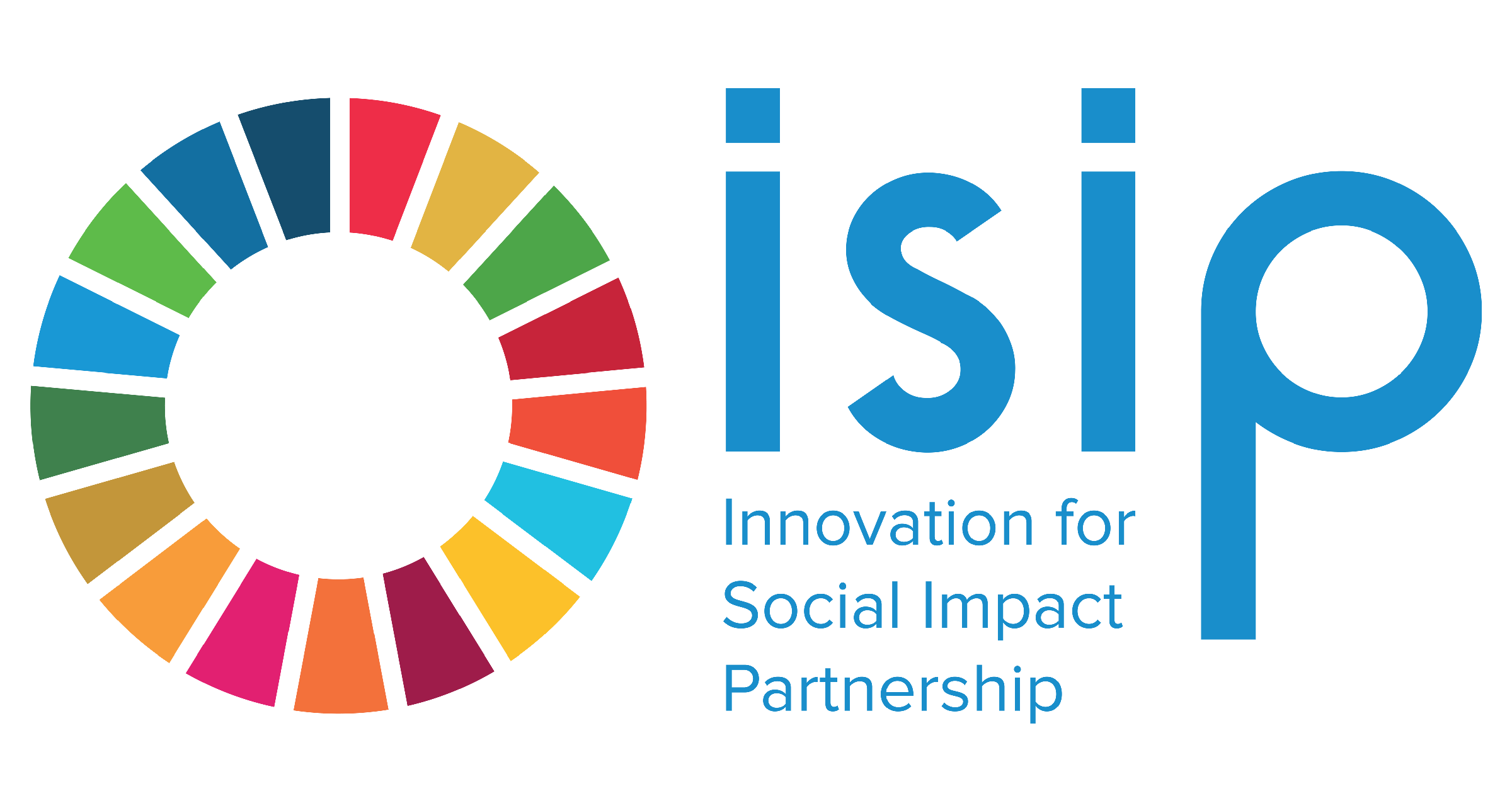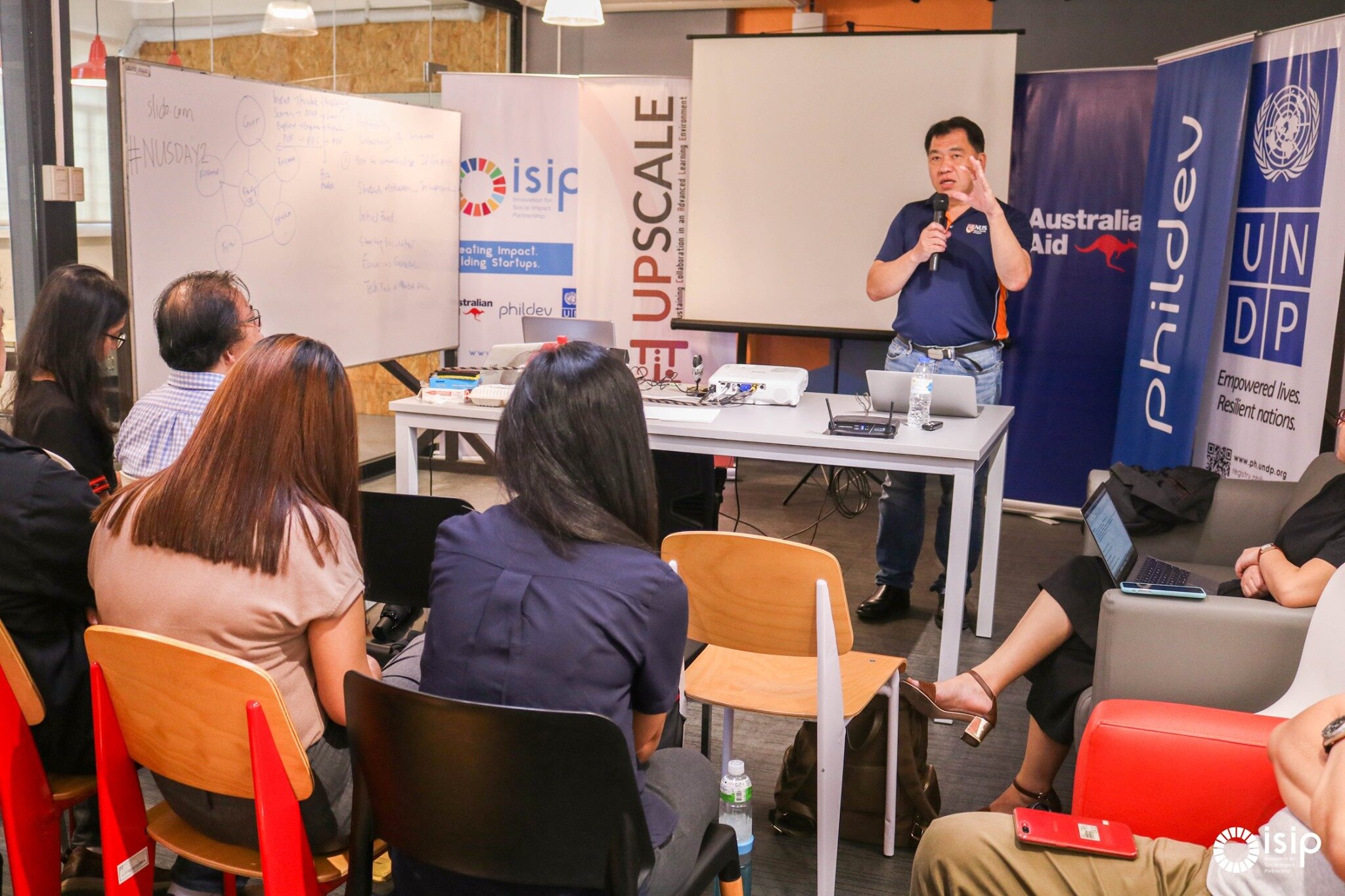The Value of Innovation: Creating Sustainable University-based Incubators through the Visiting Professors Activity
Part 3 of ISIP’s Visiting Professor Feature
by Marielle Bordado
“When it comes to impact, do not distort the market. The market is for everyone”
Now on its third deployment, ISIP’ Visiting Professor activity continues with Professor Neo Kok-Beng of the National University of Singapore. Professor Neo is an award-winning engineer, educator, and entrepreneur. Neo built a portfolio of highly-scalable and global companies with deep science in the areas of Biomedical, Financial, and Aerospace technologies.
Professor Neo spent five days at the University of the Philippines – Diliman (UPD). He conducted workshops, lectures, and consultation sessions with students and faculty members. He also ran consultations with the Technology Business Incubator (TBI) managers of UP Diliman’s 10 cohort universities and the management team of UPSCALE Innovation Hub, the in-house TBI of UP Diliman.
“The experience is good, starting with meeting with the ecosystem people, from the foundation of those running the ecosystem like the professors and the students. The meeting gave me a good overall perspective, at least in UP Diliman, how systems were working and how there is a close relationship with the community,” said Professor Neo.
Creating a Mindset
In the session with TBI Managers from UP Diliman’s 10 cohort universities, Professor Neo discussed strategies in effectively managing incubators. He also provided examples of potential sources for funding to sustain the incubator operations.
One of the topics that Professor Neo discussed with TBI Managers is the Lean Startup Methodology which is used by startups to streamline processes in building businesses and developing products, shortening the product development cycle.
Professor Marvin Oroña of MAPUA University found this topic particularly helpful since they are in the process of reviewing the course syllabi of their Entrepreneurial Engineering subject. Professor Oroña identified the weakness in the current conduct of the subject is the effective marketing of the product idea which should lead to the determination of the business viability.
“I’m glad to have attended the sessions with Visiting Professor, Neo. Number one learning is on the Lean Launchpad where I get to crystalize on the approaches on the problem-solution feed, then tech-market-feed and the tool lean canvas. This is really the major interest I am looking into—how to integrate this into the syllabus of our Entrepreneurial Engineering subject,” said Prof. Oroña.
Steve Chavez of Ateneo de Manila University’s Intellectual Property Office explains how the sessions will help him in his role as Head of Ideation Support Group. “My role deals with ideation and bringing together the industry with [our] innovators. I found the topics on the first day very helpful like having [a] two-way process of getting your funds: the corporate way and the student-led way,” he explains.
Jhaze Asuncion, UPSCALE’s Business Development Lead shares how he learned the strategy to better optimize entrepreneurial classes as a source of funnel for startups “My major takeaway is changing the expectation of the output of the class. It’s like we don’t actually want to convert 100% of the class to become entrepreneurs but allocating 20% [to] becoming entrepreneurs, 20% becoming academics, and the others would still become good employees and people working in the corporate,” he said.
There were also participants from TBIs who are in the process of building their business incubators. Mylene Gomez of the Far Eastern University Institute of Technology shares that they have just established their Innovation Center and Technology Transfer Office. Mylene learned from the sessions about setting the right metrics to measure success.“I learned that our metrics should not be the number of businesses created out of the program but the development of your way of thinking. As for us, we have to find what measure of success works for our organization,” she explains.
“I learned that our metrics should not be the number of businesses created out of the program but the development of your way of thinking. As for us, we have to find what measure of success works for our organization”
Value Creation
During his deployment, Professor Neo provided examples of his own products and innovations such as the AWAK PD System (Automated Wearable Artificial Kidney Peritoneal Dialysis) which makes dialysis more convenient and accessible for patients; The Medical Soft Robotics Rehab for Stroke patients, and his latest venture which is the Personal Aerial Vehicle (or “flying car”) for Urban Aerial Mobility communities.
“I liked how professor [Neo] brought in the devices. You would really appreciate the innovations that their team developed. Even showing clips and slides of those innovations and the stories behind them has inspired me. If they can do it, why not me?” shares Steve Chavez.
Professor Neo emphasized on the importance of value creation when it comes to innovation. “When it comes to impact, do not distort the market. The market is for everyone. Then people say you are heartless but if you don’t profit, who’s going to invest?” The question is how are you going to return this investment and how are you going to maximize it?” he explains.
In his session with the Social Enterprise (SE) Founders of the ISIP Social Impact Accelerator Batch 2, Professor Neo used the AWAK PD System as an example of creating value for innovation. Neo shares that when it comes to the product, the people are actually paying for the convenience of having access to a dialysis machine 24/7. Instead of having to go to hospitals or dialysis clinics, they can easily undergo dialysis wherever they are. Essentially, the customers are paying for the value of their time, so that they can still do other things like work and other important activities.
The SE Founders also raised questions regarding the pricing of their products and services, and whether they should sell it cheaper since they are a social enterprise. Professor Neo explains “When you sell cheap, who benefits? The people who can’t afford it? Wrong. The people who CAN afford it will benefit,” he said.
“When you sell cheap, who benefits? The people who can’t afford it? Wrong. The people who CAN afford it will benefit”
Furthermore, he suggested “Take the profit, put it in a foundation or as a subsidy and then if they [the customers] come to you, they can always say they cannot afford it then we can get a better option. Either they get a discount or get a foundation to fund it.”
Learning from Experience
The participants from the different Universities who participated in the activity shared their key takeaways and how they can apply this in their respective organizations and TBIs.
“It’s a validation and confirmation for us as an organization, as a TBI, they should be taking care of their commercial champions. It’s enlightening that it’s an affirmation that I am on the right track as that person in this organization. When he said that we should have ideally US$1million revenue in a year, we were able to gather an amount close to it (in grants) last year” shares Jhaze Asuncion.
“It’s easy to learn these things on paper but it’s always different when somebody has experienced it and has been doing it for some time now [to share this knowledge with us]. The value lies not [just] on the concepts but the sharing of how it was applied in a real context,” said Mylene Gomez of FEU Tech.
“Reflecting on the experience, it would be good if we network more with those who have a lot more experience in this field. We might need to benchmark from other Universities,” said Jon Fernandez.
In conclusion, Professor Neo shares the value of having activities like the Visiting Professors, particularly in facilitating knowledge exchange in the ASEAN region.
“The problems we usually deal with are our problems as a nation [Singapore], but there are also issues as a global citizen, in which my students do not have that perspective yet. This program does not only look at it [the problem] but also bring knowledge and different views regionally and hopefully in the ASEAN we can help each other upgrade,“ he said.
“The problems we usually deal with are our problems as a nation [Singapore], but there are also issues as a global citizen, in which my students do not have that perspective yet. This program does not only look at it [the problem] but also bring knowledge and different views regionally and hopefully in the ASEAN we can help each other upgrade”
--
The Visiting Professors is one of the activities of the Innovation for Social Impact Partnership (ISIP), a project co-implemented by UNDP in the Philippines and PhilDev Foundation, with generous support from the Australian Embassy in the Philippines.






